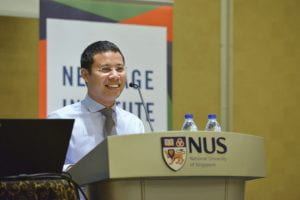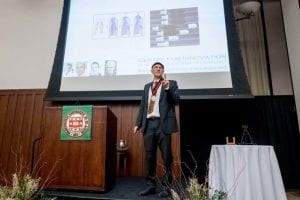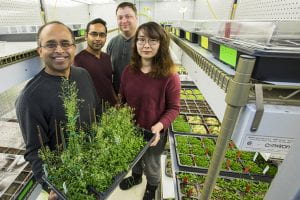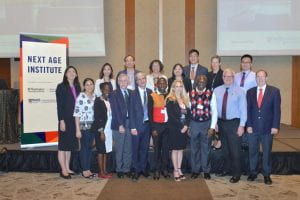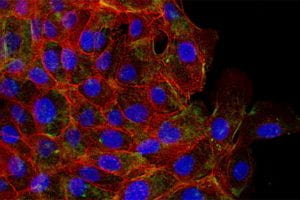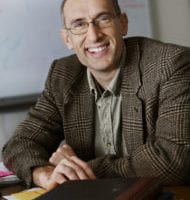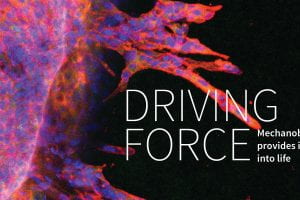Defects in tissue trigger disease-like transformation of cells (Links to an external site)
Amit Pathak, assistant professor of mechanical engineering in the School of Engineering & Applied Science, and his team found that one small defect in tissue boundaries known as the basement membrane can lead normal cells to take on characteristics of diseased cells, such as cancer cells, and invade the surrounding tissue.
A partnership for well-being (Links to an external site)
Washington University and the National University of Singapore (NUS) partnered to present the multi-day symposia, “University Partnerships for Innovation: Advancing Human Well-Being.” The event included a symposium on mechanobiology, one on inclusion in asset building, and a special joint session on innovation partnerships. The aim was to illuminate applied research and innovations at the intersection of social policy, engineering and medicine.
Genin named inaugural Faught Professor of Mechanical Engineering (Links to an external site)
Guy Genin, an internationally renowned expert in mechanobiology, was installed as the Harold and Kathleen Faught Professor of Mechanical Engineering at Washington University in St. Louis Feb. 12.
Keeping plant-cell motors on track (Links to an external site)
Molecular brakemen keep transporter proteins in check until it’s their turn to move
Advancing well-being with global partnerships (Links to an external site)
Washington University in St. Louis strives to help solve some of the world’s biggest problems, but the effort doesn’t occur in a vacuum. The university is fully engaged with a global network of partners, via education programs and research initiatives, to develop tangible and lasting solutions.
Cells’ mechanical memory could hold clues to cancer metastasis (Links to an external site)
New use for a pesky weed (Links to an external site)
How dandelion seeds act as a perfect pipette in the lab
Genin elected AIMBE Fellow (Links to an external site)
Guy M. Genin, professor of mechanical engineering and materials science in the School of Engineering & Applied Science at Washington University in St. Louis, has been elected to the 2017 College of Fellows of the American Institute for Medical and Biological Engineering (AIMBE).
Driving force (Links to an external site)
Mechanobiology provides insight into life. Engineers and scientists have recently identified a missing link that is critical to understanding and improving human health and the living environment — the emerging field of mechanobiology, or how biological systems sense, generate and respond to physical forces.
NSF announces new Science and Technology Center (Links to an external site)
Washington University-Penn partnership will investigate biology’s mechanics

